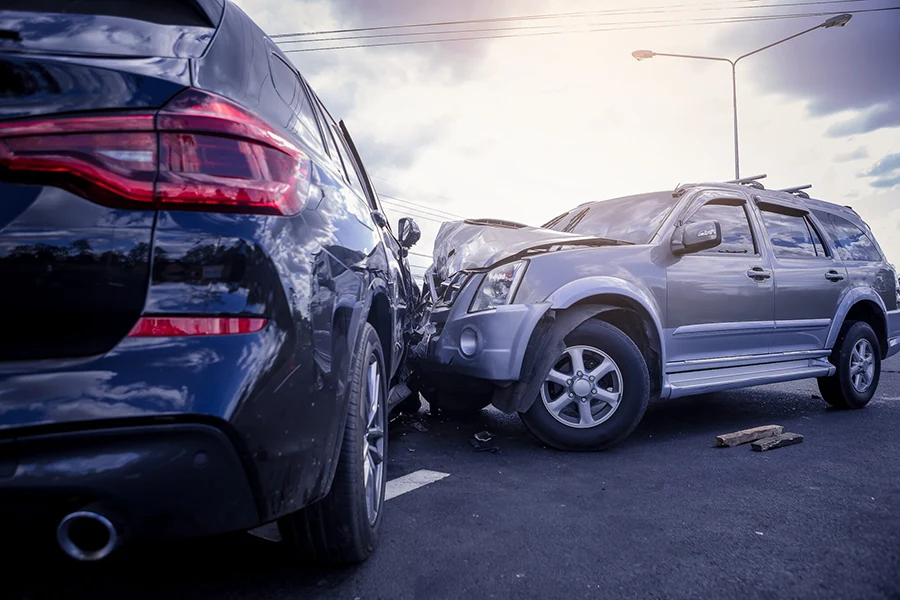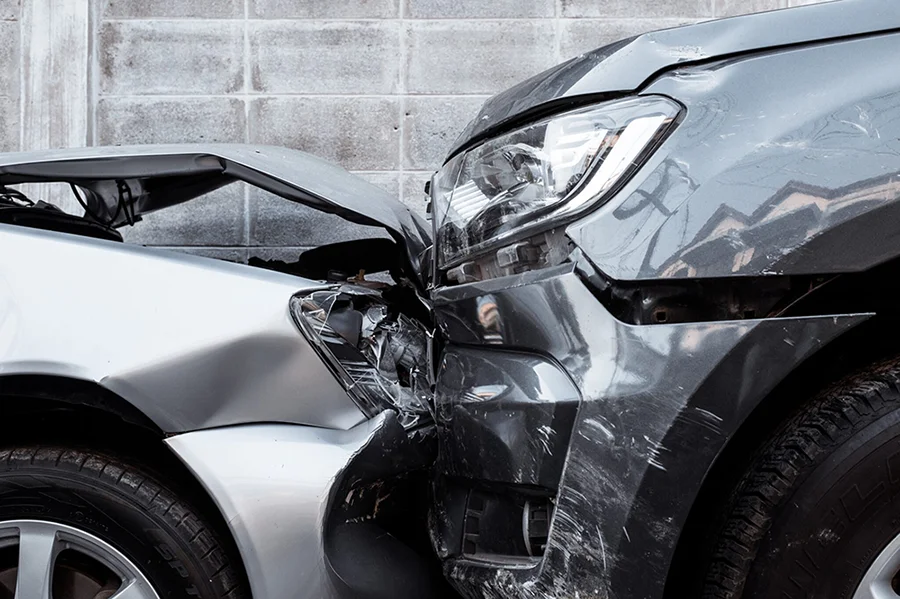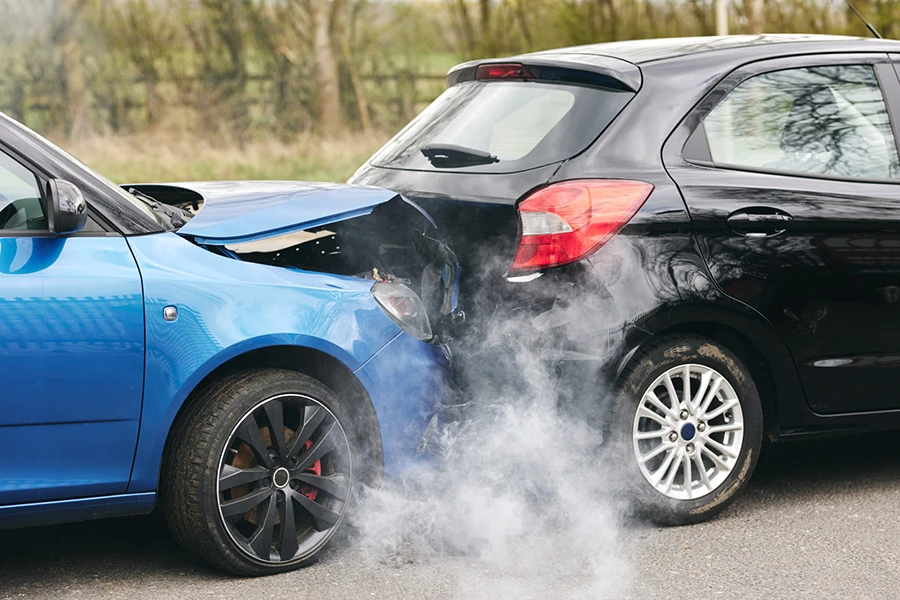What Missouri Drivers Need to Know About No-Fault Insurance
By: Simon Law | December 11, 2024

Auto insurance coverage can vary widely in the United States from state to state, often falling into one of two main categories: “at-fault” and “no-fault” systems. Some states operate under a no-fault insurance model, where each driver’s own insurance covers their injuries regardless of who caused the accident. Other states follow an at-fault system, where the driver responsible for causing the accident is also responsible for covering the damages.
As a Missouri driver, you might wonder, “Is Missouri a no-fault state?” Understanding the answer to this question is crucial, as the distinction between these systems can significantly impact your insurance claims and potential liability if you’re ever in an accident. Knowing how Missouri’s insurance laws apply can help you make informed decisions and prepare you for handling any accident scenario.
Missouri is an At-Fault State
Missouri operates as an at-fault, or “tort” state, meaning that in the event of an accident, the driver found responsible for causing the accident is also financially responsible for covering the damages. The at-fault driver’s insurance must pay for the other party’s injuries, property damage, and other losses from the accident.
For Missouri drivers, this at-fault structure has a few key implications:
- Liability Coverage: The at-fault system emphasizes the importance of carrying adequate liability insurance, as being found at fault in an accident without sufficient coverage could lead to significant out-of-pocket expenses.
- Various Ways to Seek Compensation: The injured party or their insurance may seek compensation through various means—filing a claim with the at-fault driver’s insurance, with their own insurance if they have optional coverages like uninsured or underinsured motorist coverage, or through a personal injury lawsuit if damages exceed policy limits.
This system underscores the importance of choosing appropriate coverage and highlights the necessity of understanding how claims and liability work under Missouri’s insurance laws. Working with experienced St. Louis car accident attorneys can help you navigate the nuances of these cases to seek the total compensation you deserve.
What Does it Mean to Be an At-Fault State?
Being an at-fault or tort-based state like Missouri means that responsibility for covering damages after an accident falls on the driver who caused the accident. In practice, this means that after an accident occurs, insurance companies will work to determine which driver holds the most responsibility or “fault.” The at-fault driver’s insurance then becomes responsible for covering the injured parties’ medical expenses, vehicle repairs, and other accident-related costs.
Missouri applies a “pure comparative fault” rule when determining fault and awarding damages. Under this rule, each driver’s level of responsibility in the accident is calculated as a percentage. For instance, if Driver A is found to be 80 percent at fault and Driver B is 20 percent at fault, Driver A’s insurance would cover 80 percent of the damages. Driver B’s insurance would only be responsible for the remaining 20 percent. This comparative approach allows each party to pursue compensation even if they share some responsibility for the accident.
In an at-fault system, fault determinations can directly affect insurance premiums. Drivers with a history of being found at fault in accidents often face higher insurance premiums, as they’re considered higher-risk clients. For Missouri drivers, understanding how fault is calculated and reported can be essential for managing immediate financial responsibilities after an accident and long-term insurance costs.
How Does This Affect Personal Injury Claims in Missouri?
Personal injury claims following a car accident in an at-fault state like Missouri are directly influenced by who is found responsible for the accident. If a driver is injured due to another driver’s negligence, they have several options for seeking compensation. They may file a claim against the at-fault driver’s insurance company, pursue compensation from their own insurance if they carry medical payments or personal injury protection (PIP) coverage, or file a personal injury lawsuit to recover damages.
Missouri’s pure comparative fault rule also applies to personal injury claims, meaning that the amount a person can recover may be reduced if they’re found partially at fault for the accident. This system allows injured parties to recover compensation even if they bear some blame, making it critical to work with legal and insurance professionals to ensure accurate fault determination.
What Happens if I’m the Victim of an Accident in Missouri, and the Other Driver Has No-Fault Insurance?
If you’re involved in an accident in Missouri and the at-fault driver carries no-fault insurance, you should be cautious and proactive. In no-fault states, insurance primarily covers the policyholder’s injuries and medical expenses, regardless of fault. However, in Missouri’s at-fault system, this doesn’t relieve the at-fault driver of responsibility for the other party’s injuries and property damage.
When a driver in Missouri is injured by someone carrying no-fault insurance, their injuries might not automatically be covered by the no-fault driver’s policy. This leaves the injured Missouri driver to pursue compensation through alternative means, such as filing a claim under their own policy if they have uninsured or underinsured motorist coverage or pursuing legal action if the injuries are severe.
If the at-fault driver lacks adequate liability insurance, Missouri law allows the injured party to file a personal injury lawsuit if specific conditions are met. This option is especially relevant in severe injuries or significant financial losses, as it enables the injured driver to seek compensation beyond what an insurance policy might cover. Working with a personal injury lawyer can help clarify the best course of action in these situations, ensuring that victims receive fair compensation even when no-fault insurance complicates the claims process.
What If I Cause an Accident in Missouri But Have No-Fault Insurance?
You are still obligated to pay if you carry no-fault insurance and cause an accident in Missouri because this coverage does not shield you from liability.
As the at-fault driver, you would be liable for covering the costs associated with the other party’s injuries and property damage. Your no-fault insurance may cover your medical expenses and those of your passengers, but it will not protect you from liability regarding the other party’s claims. If the injured party seeks compensation, they can file a claim against your liability insurance, or if you lack sufficient coverage, they may pursue a personal injury lawsuit against you to recover their losses.
This means that having no-fault insurance does not exempt you from the financial consequences of causing an accident in Missouri. Drivers must carry adequate liability insurance to protect themselves against the potential costs associated with an accident, including legal fees and damages awarded in a lawsuit.
Car Accidents Caused By Uninsured Drivers
Encountering an uninsured driver in an accident can be challenging for any Missouri driver. In Missouri, all drivers must carry a minimum amount of liability insurance, including bodily injury and property damage coverage. Specifically, the minimum level of coverage required by state law is:
- $25,000 per person for bodily injury
- $50,000 per accident for bodily injury
- $25,000 per accident for property
Missouri law also requires drivers to have uninsured motorist coverage of $25,000 for bodily injury per person and $50,000 for bodily injury per accident.
However, despite these requirements, some drivers choose not to carry insurance or fail to meet these minimums. If you find yourself in an accident with an uninsured driver, there are a few steps you can take to protect your interests:
- Gather Information: Document the scene by taking photos, collecting witness statements, and obtaining the uninsured driver’s information, including their name, contact details, and vehicle information.
- Notify the Authorities: Report the accident to the police, as an official report can be crucial for any future claims or legal proceedings.
- Contact Your Insurance Company: If you have uninsured motorist coverage, notify your insurance company immediately. This coverage can help with medical expenses and damages the uninsured driver cannot.
- Consider Legal Action: If you sustained significant injuries or damages and the uninsured driver is at fault, you may have the option to file a personal injury lawsuit against them. This can help you recover your losses, though it may require legal assistance and can be lengthy.
Having uninsured motorist coverage can be a valuable safety net for Missouri drivers, providing financial protection in an accident with an uninsured driver.
Get Help After A Car Accident From Expert Personal Injury Attorneys
Understanding Missouri’s at-fault system is essential for every driver. Knowledge of your rights and responsibilities can significantly impact the outcome of a car accident. If you’ve been in an accident, it’s essential to have the support of experienced legal professionals who can guide you through the claims process, help you gather necessary evidence, and advocate for your rights.
At Simon Law, our dedicated personal injury attorneys are here to assist you in pursuing the compensation you are entitled to for medical bills, property damage, and other losses from the accident. Don’t face the aftermath of a car accident alone. Contact Simon Law today for a free consultation to discuss your case and explore your options. We are committed to ensuring you receive the justice you deserve.


